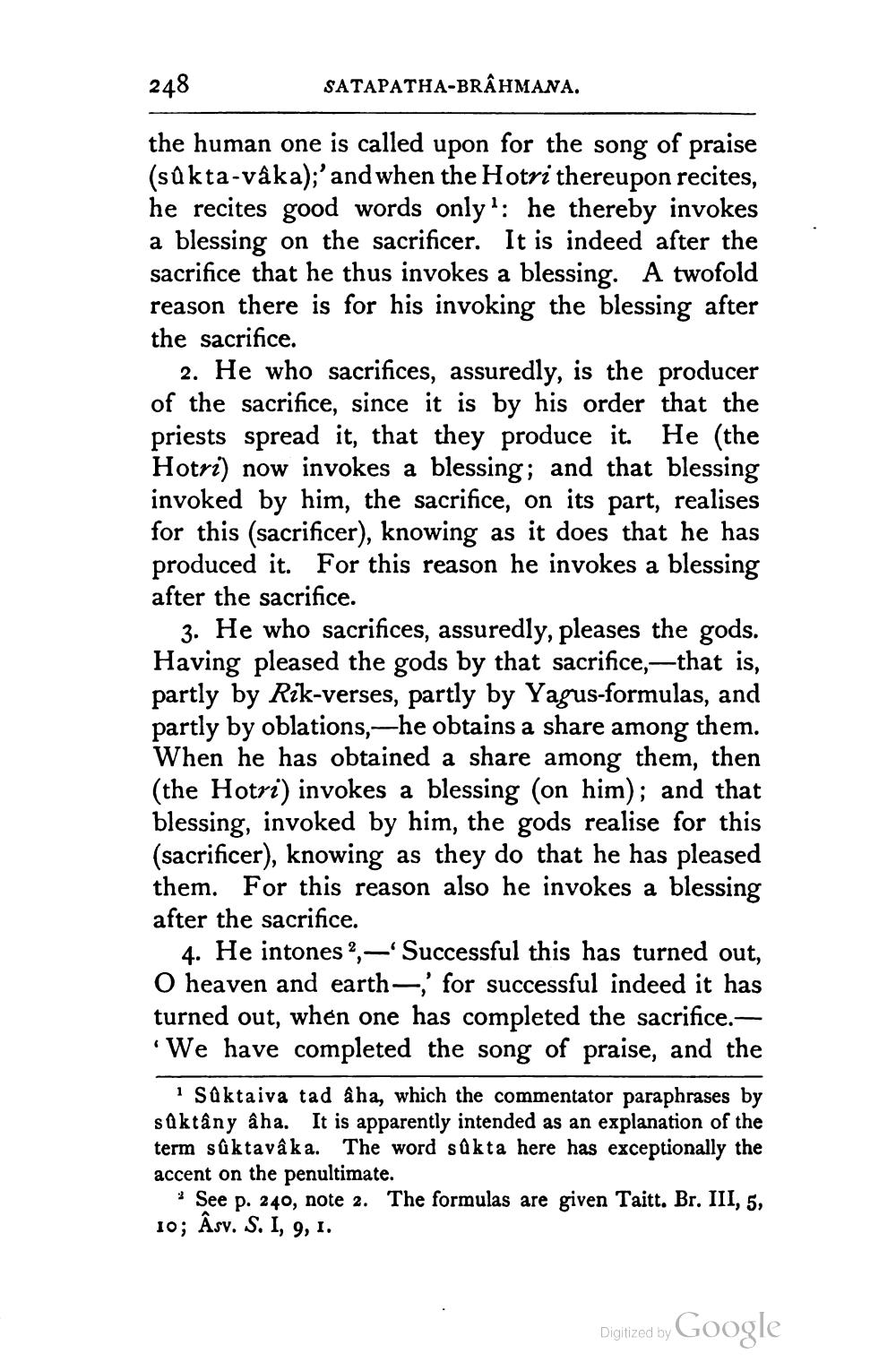________________
248
SATAPATHA-BRAHMANA.
the human one is called upon for the song of praise (sûkta-vâka);'and when the Hotri thereupon recites, he recites good words only!: he thereby invokes a blessing on the sacrificer. It is indeed after the sacrifice that he thus invokes a blessing. A twofold reason there is for his invoking the blessing after the sacrifice.
2. He who sacrifices, assuredly, is the producer of the sacrifice, since it is by his order that the priests spread it, that they produce it. He (the Hotri) now invokes a blessing; and that blessing invoked by him, the sacrifice, on its part, realises for this (sacrificer), knowing as it does that he has produced it. For this reason he invokes a blessing after the sacrifice.
3. He who sacrifices, assuredly, pleases the gods. Having pleased the gods by that sacrifice,—that is, partly by Rik-verses, partly by Yagus-formulas, and partly by oblations,-he obtains a share among them. When he has obtained a share among them, then (the Hotri) invokes a blessing (on him); and that blessing, invoked by him, the gods realise for this (sacrificer), knowing as they do that he has pleased them. For this reason also he invokes a blessing after the sacrifice.
4. He intones ?,-'Successful this has turned out, O heaven and earth — for successful indeed it has turned out, when one has completed the sacrifice.We have completed the song of praise, and the
i Sûktaiva tad a ha, which the commentator paraphrases by saktany aha. It is apparently intended as an explanation of the term sûktavaka. The word sakta here has exceptionally the accent on the penultimate.
* See p. 240, note 2. The formulas are given Taitt. Br. III, 5, 10; Asy, S, I, 9, 1.
Digitized by Google




